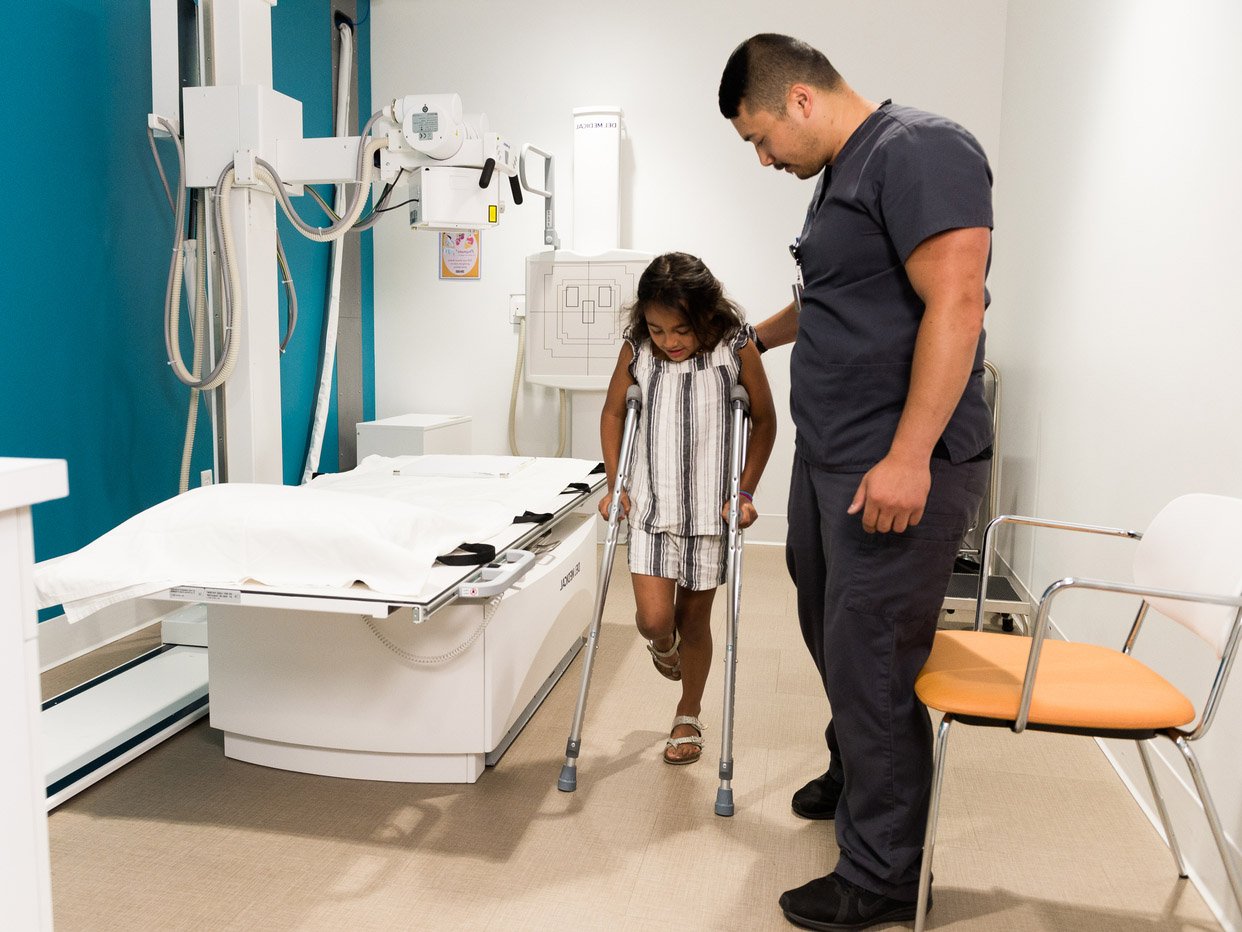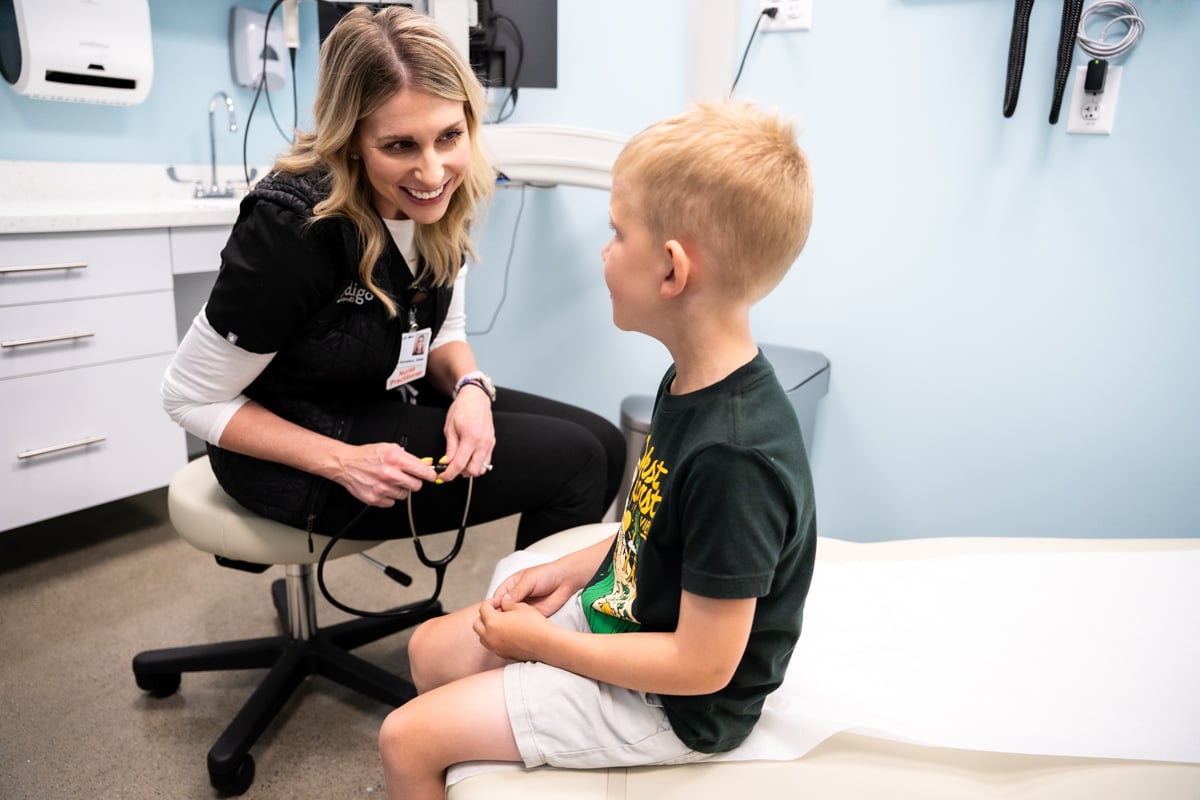If you have an aching shin that gets worse with every run, or your young soccer star complains of foot or ankle pain on the pitch, a minor fracture may be the culprit. The first step to treating a minor fracture is understanding just what it is. Our experts at Indigo Urgent Care have shared some common questions and answers.
What is a minor fracture?
A minor fracture, also known as a stress or hairline fracture, is a small crack or severe bruise within the bone. It’s often caused by repetitive stress or force that puts strain on a bone or group of bones. The injury can affect anyone, but is common among athletes and people who have osteoporosis or other conditions that weaken the bones.
Most minor fractures occur in the weight-bearing bones of the feet or lower legs, which is why runners, dancers, and soccer and basketball players are at risk. They can also occur in the upper body and are often related to a fall or accident.
How do you know if you have a minor fracture?
The most common sign of a minor fracture is pain, which can get worse over time or when you move or touch the area. The pain usually starts in a specific spot and may lessen with rest. Other common signs and symptoms of a minor facture include:
- Difficulty moving or putting weight on the injured area
- Swelling and redness
- Deformity of the injured area
How do you treat a minor fracture?
Minor or not, a medical provider should always look at a fracture. Our providers will evaluate your injury and may take an X-ray to see if there’s a break. If it’s a minor fracture, you will receive a care plan and treatment for your injury. This may include splints, medication or a referral, depending on the affected bone and the medical recommendation of your provider.
There are some steps you can take before you seek medical care. As soon as you suspect you or a family member may have a fracture, elevate the injured area and reduce activity – particularly activity that’s causing the pain. Ice the injury for the first 24 to 48 hours, and use over-the-counter pain relievers such as ibuprofen to help with pain and swelling.
In rare cases, a minor fracture may be serious enough to warrant surgery. Our urgent care providers will refer you to the appropriate place for care, if necessary.
How long does a minor fracture take to heal?
On average, it takes about six to eight weeks for a minor fracture to heal completely. Depending on the which bone is broken – and other factors such as age and an individual’s overall health – healing times can vary. As a general rule, as long as you feel the pain, the bone is still fragile.
Most minor fractures will heal on their own, but only if you refrain from activities that put weight or stress on the affected area. During your recovery time, it’s important to modify your activity. Once the pain is gone and you’re ready to get back in action, do it slowly to avoid re-injury.
What happens if a minor fracture is left untreated?
Don’t let a minor fracture become something major. If you’re feeling pain now, it’s likely to get worse without treatment. You may also be setting yourself up for some serious complications, such as:
- The bone may break completely
- The fracture may lead to a defect in the bone that can limit mobility
- Arthritis may develop in the joint where two bones meet
Don’t try to power through the pain. Seek medical care right away if you suspect you have a minor fracture.
Can you have a fracture and not know it?
Absolutely. While these types of injuries can cause a great deal of pain, you might not know why you hurt or what’s causing the pain. That’s especially common with kids, who are sometimes too busy running, jumping and playing to notice. Often times, the only way to detect a minor fracture is with an X-ray of the affected area.
Can urgent care treat fractures?
All our MultiCare Indigo Urgent Care clinics are equipped to treat minor fractures and have digital X-ray services on site. We can refer you to an orthopedist for follow up care, if needed. For more severe fractures (significant deformity or if the bone is protruding through the skin) you should seek care at an emergency room.
If you think a minor fracture is causing your pain, visit an Indigo Health location near you.


